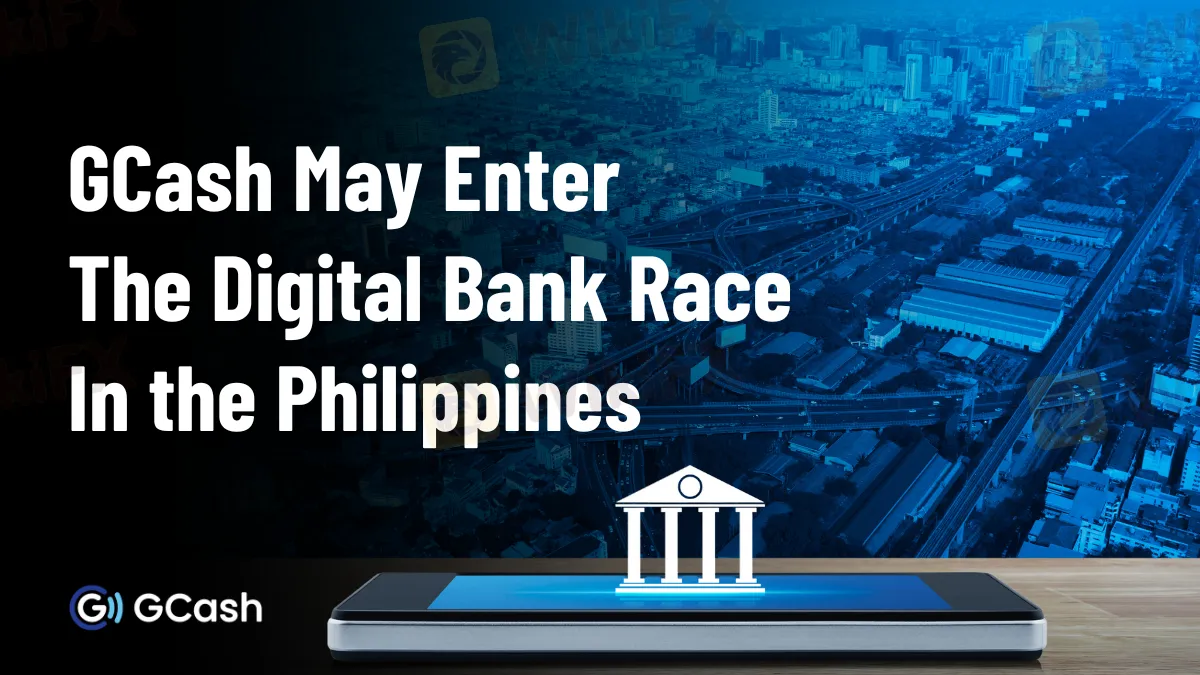简体中文
繁體中文
English
Pусский
日本語
ภาษาไทย
Tiếng Việt
Bahasa Indonesia
Español
हिन्दी
Filippiiniläinen
Français
Deutsch
Português
Türkçe
한국어
العربية
GCash May Enter the Digital Bank Race in the Philippines
Abstract:GCash considers a digital bank license in the Philippines as BSP lifts the moratorium, paving the way for potential expansion and competition in the digital banking sector.

GCash, the Philippines' top e-wallet provider, is considering entering the digital banking industry. According to Martha Sazon, CEO of GCash, the firm is contemplating applying for a digital bank license after the Bangko Sentral ng Pilipinas (BSP) declaration to remove its moratorium on new digital banking licenses beginning January 1, 2025.
This decision by the BSP allows for up to 10 digital banks to operate in the nation. While GCash is considering this move, Sazon said, “Nothing is definite at the moment.” Six digital banks have been founded in the Philippines since the Digital Banking Framework was implemented in December 2020. These include Tonik, Maya Bank, OFBank, UNObank, UnionDigital Bank, and GoTyme Bank.
With the embargo lifted, four more licenses will become available, providing chances for both new applicants and incumbent institutions eager to transition to digital banking. Given the growing interest in digital banking, GCash's prospective entry into this space is not unexpected. It would also follow in the footsteps of its rival, Maya. Known initially as PayMaya, Maya shifted from an e-wallet to a digital banking license before opening Maya Bank in April 2022. Since then, Maya Bank has garnered over 3 million customers and was recently included in Forbes' 2024 list of the World's Best Banks.
In recent developments, GCash received substantial fresh investments from Ayala Corporation and Mitsubishi UFJ Financial Group (MUFG), raising its worth to an astonishing US$5 billion. The total investment of US$800 million, which includes secondary and primary finance, is one of the biggest fintech investments in the Philippines to date. Ayala's subsidiary AC Ventures Holdings, Inc. (ACV) will acquire an additional 8% of GCash's parent firm, Mynt. Similarly, after binding agreements, MUFG Bank, Ltd. will purchase an 8% share in Mynt.

Sazon said that these funds would be used largely to boost GCash's lending business, which has already seen tremendous growth. GCash has disbursed PHP 155 billion in loans, representing a 73% year-over-year increase. The organization today serves 5.4 million borrowers, a figure that has increased by more than 70% in the last year. GLoan, a quick and simple loan solution that enables consumers to borrow up to PHP 125,000, is the driving force behind GCash's lending services. GCash differentiates itself from conventional banks by focusing on satisfying Filipinos' daily, small-scale financial requirements.
In addition to loans, GCash intends to expand its core payment services and pursue worldwide development. GCash now operates in 17 countries, with plans to expand its reach to the Filipino diaspora.
When questioned about the likelihood of an initial public offering (IPO), Sazon responded that, although an IPO is always an option, the company's primary emphasis is on long-term commercial development. She said that GCash is actively watching market circumstances before making final choices on a public offering, but no specifics on the IPO structure were disclosed.
Stay updated on GCashs potential move into digital banking and other fintech developments in the Philippines. Visit WikiFX News now for the latest insights!

Disclaimer:
The views in this article only represent the author's personal views, and do not constitute investment advice on this platform. This platform does not guarantee the accuracy, completeness and timeliness of the information in the article, and will not be liable for any loss caused by the use of or reliance on the information in the article.
Read more

New Zealand's FMA Warns Against "YouTube Crypto Investment Scam"
The Financial Markets Authority (FMA), New Zealand's financial regulator, warns individuals against investment scams that use YouTube channels to promote fraudulent cryptocurrency investment firms/websites. The authority explained on its official website how the YouTube cryptocurrency scam works, providing a step-by-step guide to help people recognize and avoid it. Read HOW THE SCAM WORKS and BE SAFE.

How to Know if the Market is Correcting or Reversing?
In trading, distinguishing between a market correction and a market reversal is crucial for making sound decisions. Misjudging one for the other can lead to missed opportunities or significant losses. While both involve price movements, their causes, duration, and implications differ substantially. Understanding these differences can help traders improve their strategies and adapt to market conditions effectively.

RM62k Lost Investment Scam After Joining XRP Community Malaysia on Telegram
A 30-year-old homestay manager from Chendering, Malaysia, fell victim to an online bitcoin investment scam, losing RM62,214.59. According to Kuala Terengganu police chief ACP Azli Mohd Noor, the incident unfolded after the victim joined a Telegram group named “XRP Community Malaysia” on December 19. The group promoted bitcoin investments allegedly powered by Artificial Intelligence (AI).

Empowering the Next Generation in Finance with WikiFX: Gen Z’s Investment Journey
With a steadfast commitment to fostering sustainable financial literacy and providing clear, strategic guidance to the next generation, WikiFX has collaborated with Van Lang University and Hoa Sen University to host an exclusive series of financial education workshops. This marks a pioneering initiative by WikiFX in Vietnam, designed not only to deliver foundational knowledge but also to instill a sense of responsibility and cultivate prudent financial decision-making among aspiring young traders.
WikiFX Broker
Latest News
Two Californians Indicted for $22 Million Crypto and NFT Fraud
RM62k Lost Investment Scam After Joining XRP Community Malaysia on Telegram
Victims of Financial Fraud in France Suffer Annual Losses of at Least €500 Million
WikiFX Review: Is Ultima Markets Legit?
Colorado Duo Accused of $8M Investment Fraud Scheme
What Impact Does Japan’s Positive Output Gap Have on the Yen?
Macro Markets: Is It Worth Your Investment?
Trading is an Endless Journey
SEC Warns on Advance Fee Loan Scams in the Philippines
Malaysia Pioneers Zakat Payments with Cryptocurrencies
Currency Calculator


